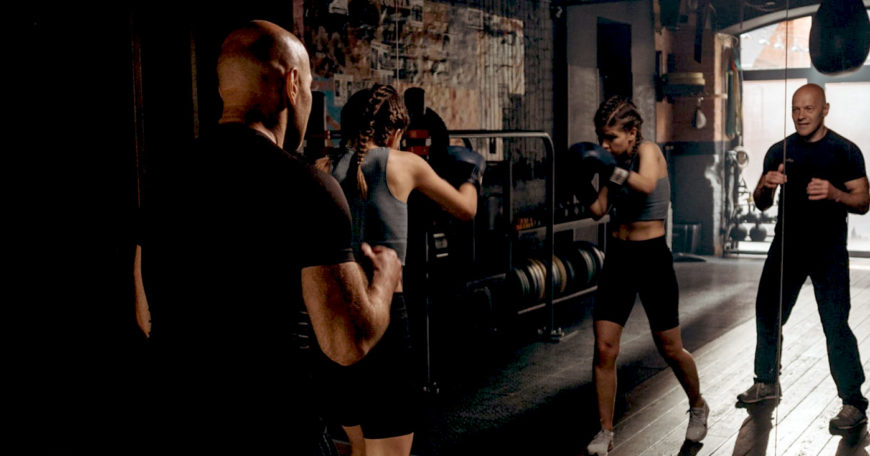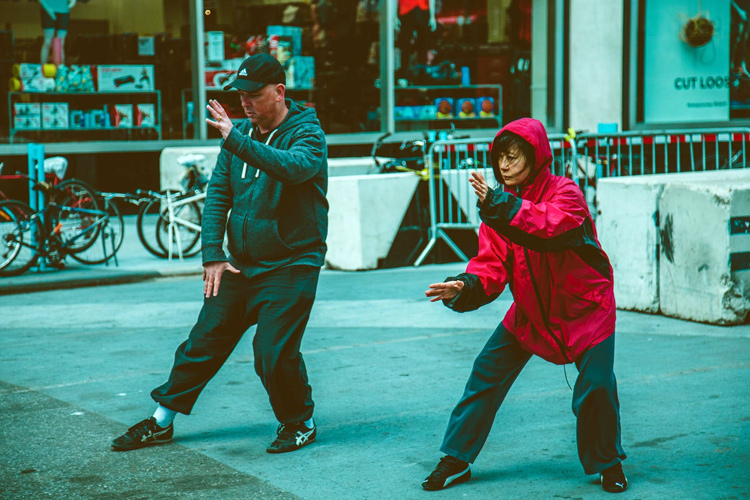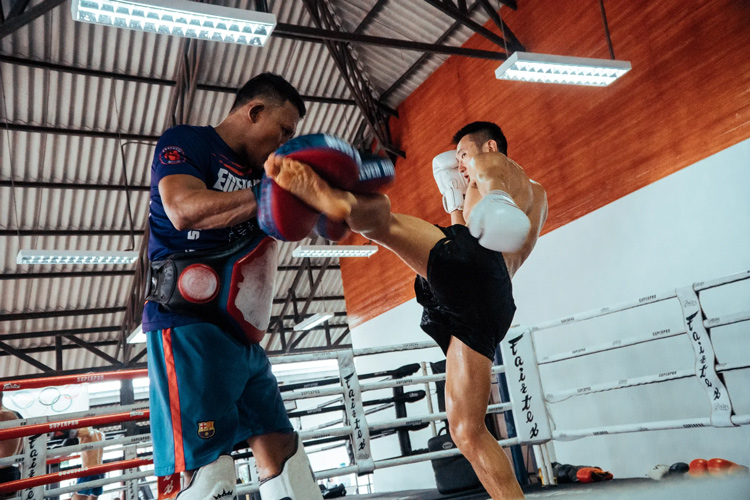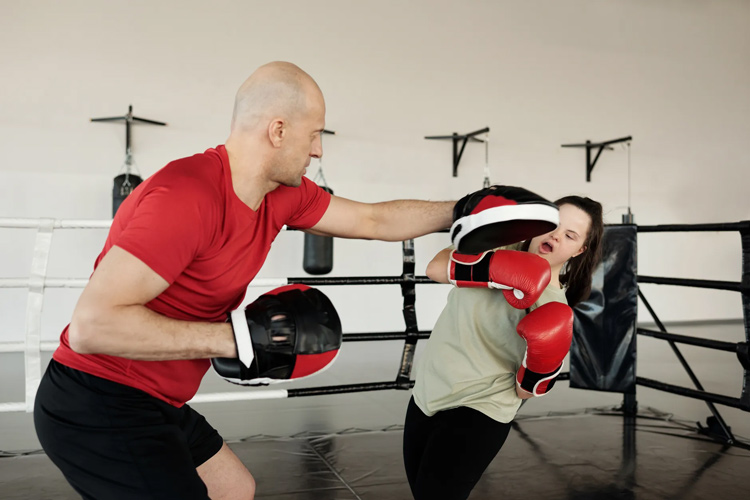Whether you are a novice or a professional, choosing a suitable martial arts gym deserves time and proper consideration. It’s all too easy to rush a sign-up based purely on location, price, or to train with a famed coach or athlete. While there are advantages to considering either or all of these factors, choosing a gym requires a multi-faceted approach. You may not be able to get everything you want, but it is important that you feel satisfied, comfortable and safe in your new gym.
Firstly, before anything else, decide whether or not there is a discipline you would like to train in. If you have already chosen a style, then it is worthwhile to find a specialist school that has a substantial offering in that style in regards to class availability and variety of coaches. However, if you are still undecided, check out gyms that are single discipline as well as gyms that offer mixed martial arts or cross training (athletic training other than the martial art(s) offered).
Whatever or wherever you choose to train, make sure to consider the following factors before making your final decision.
1- Location
Consider how far away you are willing to realistically travel for your training. But don’t be afraid to expand that radius by a few miles just to see what’s out there. Sometimes a better price is available in a further neighbourhood, or more importantly, a better instructor. Ultimately, your future goals should help you to make this decision. If you are interested in a professional fight career, then a longer commute may be worth the sacrifice. Or perhaps you are career focused and just want to learn a new skill and get fit. In this case, perhaps a gym near to work is the best solution.
Finally, being honest about your own motivation levels can also help your choice. Having a gym nearby to the workplace or on the route home can help to eliminate the possibility of skipping your session. Gyms that are too far or out of the way can kill motivation if there is no larger purpose to the sacrifice. For this reason, location should be one of the top determinants of your outcome.
2- Transportation
Closely related to location, your transportation options will also affect your ability to attend classes regularly. Review how you will be getting to the gym and how reliable and/or difficult that mode of transportation will be. Obviously, this will vary greatly depending on where you live, but checking driving or public transport routes is a must when considering your new gym.
Clogged up freeways or multiple changes on public transport can negatively affect mood and energy levels. Chances are you’ll be making that journey multiple times a week and its impact should be taken into consideration.
3- Gym Offering
Once you have decided on your discipline, check the gym schedule to make sure the class times can fit into your own schedule. It’s also worth noting whether or not the gym operates with class levels.
Gyms that only offer ‘all levels’ classes tend to be suited for beginners only (but not all) or those who are not seeking much progression. Generally speaking, gyms that separate by experience are less overwhelming for complete beginners and more challenging for experienced practitioners.
4- Trial and Membership
I cannot stress this enough: try a few classes at your gym before signing any long term commitments. Some gyms will offer a free trial class while others offer a reduced price introductory package or programme. Make sure to arrive at least 15 minutes before class to introduce yourself, sign waivers, and get ready for the session.
When there, get all possible details regarding pricing. Some martial gyms keep it simple by offering a set price for unlimited classes, while others will have staggered pay structures depending on attendance frequency and number of disciplines. Some deals will throw in a free pair of gloves or uniforms. Make sure that the price and frequency suit your needs. If not, try a few others out before making a final decision. And always read the fine print before signing a contract, especially in regards to cancellation, whether that is just a class or the contract in full.
5- Community
You will potentially spend many hours within the gym community. Vet them as much as you do the coaches. Martial arts can be dangerous and is often challenging. Ideally, the people you will train with are the types of people you would like to hang out with. This is especially important in competitive gyms where you may be travelling together for tournaments or cornering each other for fights.
It’s also worth noting how many are a similar size and height to you. It’s a strange deliberation, but if you have chosen a weight categorised sport, these will be your best training buddies, especially if you intend on competing.
6- Desired Outcome
Contemplate how far you would like to take your practice. If you already know that at some point you would like to compete, spend extra time researching the gym’s history of competition. Do they produce champions? Are they current? Are the current coaches capable of that or was it the owner who is more or less retired?
If, on the other hand, you are simply looking to engage in martial arts, and do not wish to compete, think about the environment you want to train in, regardless. Do you want to train like a fighter, but never fight? Or would you rather be in a more relaxed setting where there is a little less pressure and perhaps more time spent on the basics?
7- Commitment
Rarely observed is the issue of commitment. Some gyms will have a minimum attendance requirement. This usually only applies to those who wish to progress to subsequent levels, but almost all students will share this wish to some degree. Whether it’s working with more experienced people or upgrading your belt, some gyms will have expectations from you.
If possible, try to find out what, if any, there are. This way you are aware of the commitment expectations in advance and can assess whether they are suitable for you or not.
Beware of any gyms that guarantee belt progressions within a certain time frame or offer a fast track option to obtain it faster. Unfortunately, there are rogue schools that are scams and do not offer legitimate programmes.
8- Equipment
Assess how much equipment and uniform are likely to cost and whether or not there is communal equipment to get you started before you make your purchases. Some gyms will expect you to buy these as soon as you sign up or before your first official class, while others maintain a grace period while you are starting out – usually a couple months.
Some sports like BJJ will not require much initial investment other than a gi (usually included with sign up), but belt testing and ceremonies are often charged outside of this. In contrast, Thai boxing will cost very little to begin with, but if you take it seriously, there is a lot of potentially expensive equipment you’ll need to buy, especially if you will be sparring.
9- Coaches & Trainers
Head coaches and their trainers can make or break a gym. People will travel from near and far to work with the best and it’s easy to get sucked into the hype (even if deserved). Again, assessing your particular needs before making your choice is advised here. Some head coaches teach all of their students, and others will only work with those who are experienced or competing.
Find out who will be teaching the majority of your classes. If you are a competitive athlete, inquire whether the coach or gym is taking on new fighters or has the time to invest in another.
Don’t let credentials, trophies or belts blind your decision. Not all champions make good teachers. Pay attention to their teaching style most importantly. There is no right or wrong necessarily, rather it is about how effective it is for you and how well you can learn from them.
10- Customer Service
Martial arts gyms are not known for their customer service. That’s not to say that they operate with poor standards by any means, however, often their model of business is not centered around it. Generally, as long as the reception is friendly there won’t be too much to worry about.. However, martial arts gyms vary widely in their approaches to business. Fight gyms, especially Thai boxing and boxing, tend to operate with a simple approach to membership, contracts and pricing. They normally aren’t in the most desirable areas, but their prices reflect that. They usually operate on a one-size-fits-all approach. Belted martial arts, on the contrary, tend to cost more a month or have attendance restrictions. This is due to the fact that they work under more structured curriculums and programmes.
A final note: Be wary of or avoid any gyms that do not have transparent pricing, implement non disclosure agreements, and/or operate an aggressive sales-driven approach. Unfortunately, there is a small number of gyms that have lost their way and charge extortionate prices.
Conclusion:
Approach your choice as if you were choosing a new family, because that is often what they become, regardless of your desired outcomes. There is no need to settle for anywhere that you will be less than satisfied.
Having an idea of what you are looking for will help prevent getting sold too quickly or making any hurried choices. There are a multitude of gyms out there that will welcome you, challenge you, and progress you. We hope these suggestions make your selection that much better.














